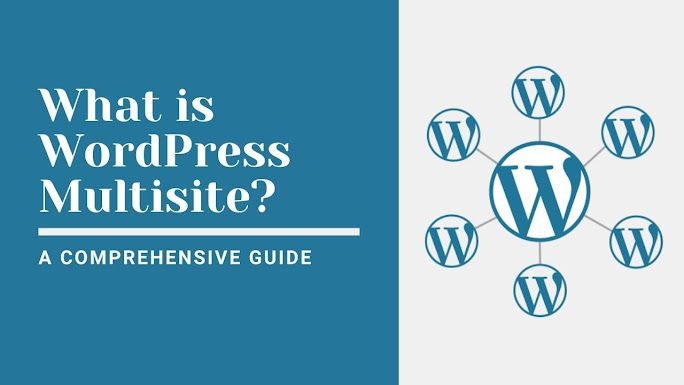Let's Have A Look at the Latest Google Spam Policies Updates 2024
In the ever-evolving landscape of online search and digital marketing, Google plays a pivotal role in shaping the way information is discovered, accessed, and consumed on the internet. With its sophisticated algorithms and stringent spam policies, Google aims to provide users with high-quality, relevant search results while combating manipulative and deceptive practices that undermine the integrity of its search engine. As we step into 2024, let's take a deep dive into the latest updates to Google's spam policies and explore how they impact website owners, marketers, and the broader digital ecosystem.
Understanding Google's Approach to Spam:
Before delving into the specific updates, it's essential to understand Google's approach to spam and its overarching goals in combating spammy practices. Google defines spam as any tactic used to deceive search engines and manipulate search results for unfair advantage. This includes techniques such as keyword stuffing, cloaking, link schemes, and low-quality content designed solely to rank higher in search results.
Google's mission is to organize the world's information and make it universally accessible and useful. To fulfill this mission, Google continually refines its algorithms and spam detection systems to ensure that users are presented with trustworthy, relevant, and authoritative content when they conduct searches.
SFWPExperts is a leading website design company specializing in creating cutting-edge websites that adhere to the latest Google updates and best practices. With a focus on responsive design, user experience, and SEO optimization, we ensure that your website remains compliant and competitive in the ever-evolving digital landscape.
Latest Google Spam Policies Updates for 2024:
As of 2024, Google has implemented several updates to its spam policies to improve the quality of search results and combat spammy tactics effectively. While specific details of these updates may vary, they generally align with Google's overarching principles of relevance, quality, and user experience. Let's explore some of the key areas of focus in Google's latest spam policy updates:
1. Content Quality and Relevance:
Google continues to prioritize high-quality, relevant content in its search results. Websites that provide valuable, informative content that meets user intent are rewarded with higher rankings, while those that engage in keyword stuffing, content scraping, or duplicative content may face penalties. The latest updates emphasize the importance of originality, expertise, and trustworthiness in content creation.
2. Link Quality and Authority:
Links remain a crucial factor in Google's ranking algorithm, but the emphasis is on quality over quantity. Websites that engage in link schemes, spammy link-building practices, or participate in link networks risk penalties from Google. The latest updates focus on rewarding natural, organic link growth from authoritative sources while penalizing artificial or manipulative linking tactics.
3. User Experience and Accessibility:
Google places a strong emphasis on user experience and website accessibility in its spam policies. Websites that provide a seamless, intuitive browsing experience across devices and prioritize accessibility for users with disabilities are favored in search rankings. Updates in 2024 may include criteria related to page loading speed, mobile-friendliness, and adherence to web accessibility standards.
4. E-A-T (Expertise, Authoritativeness, Trustworthiness):
Google's E-A-T framework remains a cornerstone of its spam policies, particularly for websites in sensitive niches such as healthcare, finance, and legal. Websites that demonstrate expertise, authoritativeness, and trustworthiness in their content are rewarded with higher rankings, while those lacking credibility or expertise may see a decline in visibility. Updates in 2024 may refine the signals used to evaluate E-A-T and enhance the accuracy of assessments.
5. Schema Markup and Structured Data:
Structured data markup, implemented through Schema.org vocabulary, helps Google understand the content and context of web pages more effectively. However, misuse of structured data, such as marking up irrelevant or misleading information, can result in penalties. The latest updates may include guidelines for proper implementation of schema markup and stricter enforcement of structured data policies.
Implications for Website Owners and Marketers:
For website owners and marketers, staying abreast of Google's latest spam policies updates is essential to maintaining visibility and credibility in search results. Adhering to best practices for content creation, link building, user experience, and structured data markup can help mitigate the risk of penalties and improve organic search performance. Additionally, regular monitoring of Google's Webmaster Guidelines and announcements from Google's Search Quality team can provide insights into upcoming algorithm changes and spam policy updates.
Conclusion:
As Google continues to refine its algorithms and spam detection systems, website owners and marketers must prioritize quality, relevance, and user experience in their digital strategies. By aligning with Google's spam policies and best practices, businesses can enhance their online visibility, build trust with users, and ultimately drive meaningful engagement and conversions. While navigating the ever-changing landscape of search engine optimization (SEO) may present challenges, staying informed and adaptable is key to success in the dynamic world of online search.
In summary, the latest updates to Google's spam policies underscore the search engine giant's ongoing commitment to providing users with trustworthy, relevant search results while combating spammy practices. By focusing on content quality, link integrity, user experience, and adherence to best practices, website owners and marketers can navigate Google's evolving algorithms with confidence and maintain a competitive edge in the digital marketplace.
Read More Articles:


-fi24961601x2133.jpg)

Comments
Post a Comment